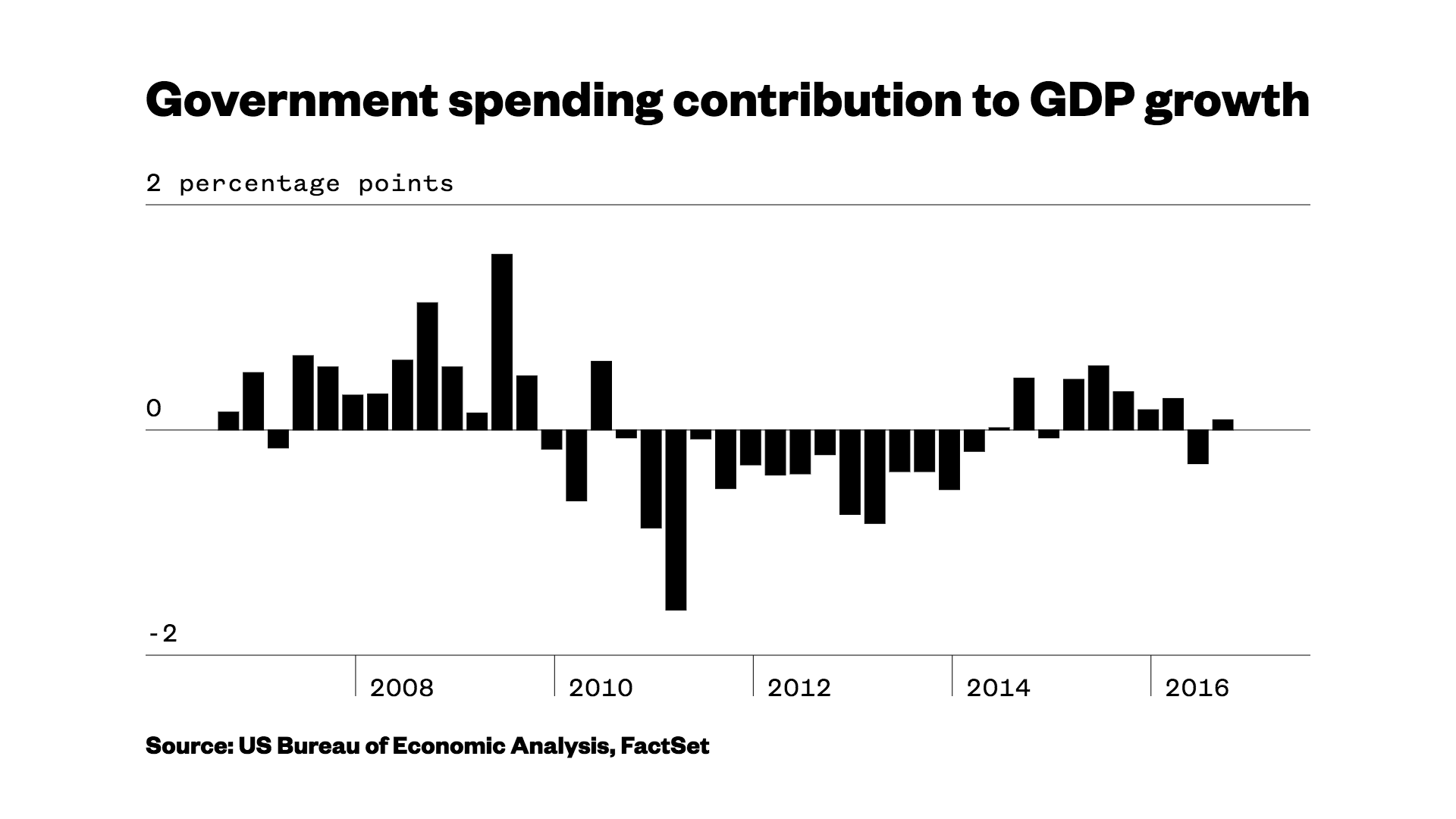Macro-economically speaking, President-elect Donald J. Trump’s professed willingness to throw decades of Republican rhetoric about fiscal conservatism out the window is exactly what the U.S. economy needs.For years, the economy has needed additional government spending—either through direct government spending or tax cuts—to push economic growth higher. (Even the IMF, where government spending was long anathema, has come around to the idea in the face of persistently sluggish global growth.)Under President Barack Obama the Republican-controlled Congress made that impossible. Republicans maintained a relentless focus on shrinking the U.S. deficit, driving the country to the brink of default over once-routine regular decisions to raise the U.S. debt ceiling, for example. That kept government spending very weak in recent years. But oddly, as the Trump era dawns, Congressional Republicans show a new openness to the idea of government spending as a way to help the economy.And, over the short term, that will likely push up economic growth, as measured by annual change in gross domestic product. The OECD, an international think tank that focuses on the world’s rich nations, said Monday that a bit of government spending, if it materializes as expected, would indeed push up GDP growth, helping the world’s largest economy break out of the 2 percent zone where it has hovered since the Great Recession. The OECD forecast puts U.S. GDP growth at 3 percent in 2018.
But oddly, as the Trump era dawns, Congressional Republicans show a new openness to the idea of government spending as a way to help the economy.And, over the short term, that will likely push up economic growth, as measured by annual change in gross domestic product. The OECD, an international think tank that focuses on the world’s rich nations, said Monday that a bit of government spending, if it materializes as expected, would indeed push up GDP growth, helping the world’s largest economy break out of the 2 percent zone where it has hovered since the Great Recession. The OECD forecast puts U.S. GDP growth at 3 percent in 2018. Here’s what the OECD said.
Here’s what the OECD said.
Advertisement


That’s sounds pretty good. But as with anything, there’s always a catch. Yes, government spending can boost growth over the short term. But it’s how wisely that money is spent, which determines whether that government spending leads to higher growth over time.Spending on overhauling decaying infrastructure that makes it easier, cheaper, and more efficient for the economy to function would be a worthwhile investment. Big outlays to expand higher education could also prepare the intellectual infrastructure the U.S. economy increasingly depends on.On the other hand, other forms of fiscal stimulus might not be as helpful to the economy. For instance, giant tax breaks for billionaires who stash their money in offshore accounts isn’t going to do much to boost economic activity in the country. (Trump’s tax plans would deliver outsized benefits for the richest Americans, according to the conservative Tax Foundation.) Nor will building a giant wall in the desert. Effectively spending like that will just rip off the taxpayers of the future. Sad!“GDP is projected to return to a moderate growth trajectory in 2017 and strengthen in 2018, mainly due to the projected fiscal stimulus, which takes effect particularly in 2018. Indeed, projected fiscal support will boost GDP growth by just under ½ and 1 percentage point in 2017 and 2018 respectively.”